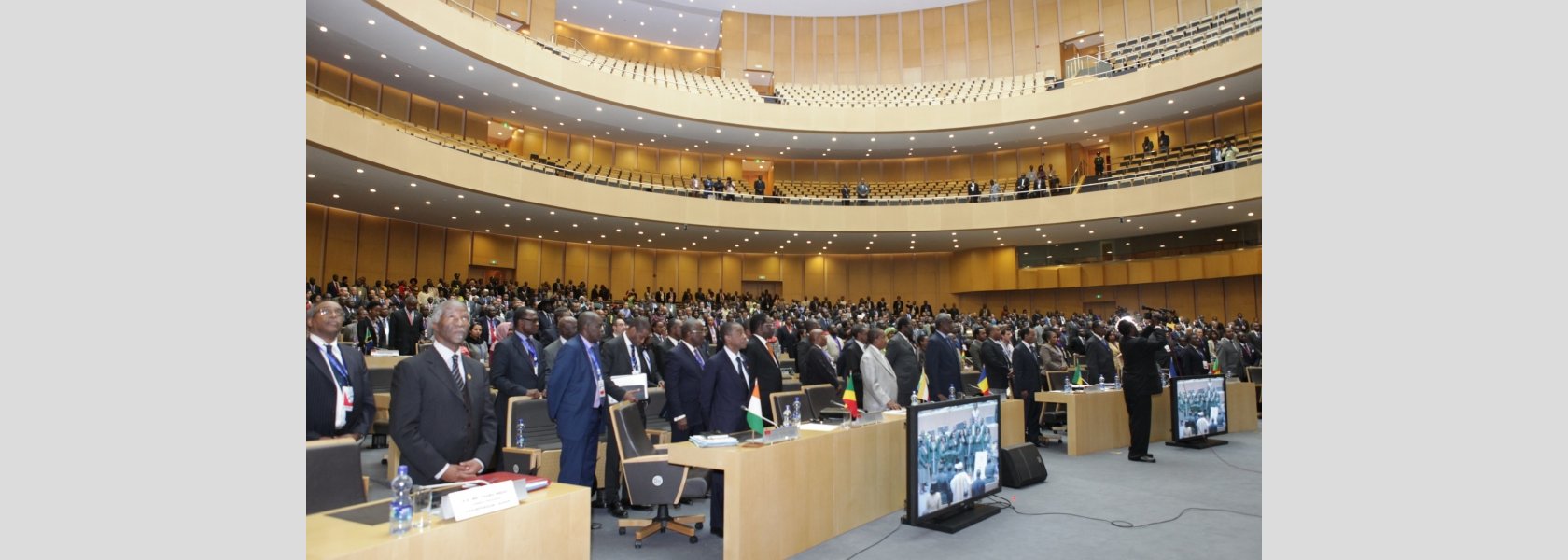At a time when the security, social and political situation in Mali remains fragile, FIDH welcomes the African Union’s decision to deploy civilian observers to “monitor the situation of human rights in the liberated areas and help Malian authorities to create the conditions for sustainable reconciliation between the various components within Malian society and for the consolidation of peace”, within the AFISMA and with the support of the African Commission on Human and Peoples’ Rights. FIDH calls upon the AU to take all the necessary steps to give effect to this decision without delay and to do so in cooperation with the United Nations and the European Union, who also plan to set up monitoring and training mechanisms for human rights.
In South Kordofan and the Blue Nile, civilians are still being held hostage to the deadlocked negotiations between Sudan and the SPLM-N, and the ongoing fighting between the two parties. The African Union must make all necessary efforts to ensure an effective and unconditional humanitarian support is provided as a matter of urgency to affected populations. It must also push for an immediate ceasefire protecting civilians from further risk to be victims of indiscriminate aerial bombing, summary executions, forced displacement or destruction of goods. Similarly, while the peace between Sudan and South Sudan remains fragile, the AU must intensify its efforts to secure the conclusion and respect of sustainable agreements between them – in particular on border demarcation and the status of Abyei. The imposition of sanctions, including individual sanctions, should be considered in case of failure of the negotiation.
Moreover, the African Union must maintain a continuing focus on the political and security situation prevailing in the Democratic Republic of Congo (DRC) – where the situation is still fragile despite the ongoing negotiations between the Congolese government and the M23 in Kampala and the reaching of a first agreement yesterday - and the Central African Republic (CAR), where the African Union must bring all its political weight to bear in supporting the ongoing political transition and avoid resumption of the conflict in the country. While the African Union has expressed concern over the “routine used of armed rebellion” in Africa and is considering “the best ways and means to deal with [this threat]”, FIDH wishes to remind the AU that impunity is one of the major causes of recurrent conflict in many countries, including in the DRC and the CAR. The African Union must encourage and support, at national and international levels, judicial procedures allowing for the prosecution of perpetrators of crimes. A failure to do so seriously jeopardises the consolidation of peace and strengthening of the Rule of Law in the DRC and the CAR.
FIDH also reminds the AU that African mechanisms for promoting and protecting human rights, like the African Commission on Human and Peoples’ Rights (ACHPR) and the African Court on Human and Peoples’ Rights, can constitute effective safeguards against the violation of fundamental rights. However, they can only do so if their effectiveness and independence of action are guaranteed. In this regard, FIDH welcomes the call made by the African Union for the ratification of the Protocol establishing the African Court and for the declaration allowing individuals and NGOs to bring their cases directly to the Court. However, our organisation is surprised that the AU has encouraged the ACHPR to consult member States prior to the issuance of resolutions relative to them. FIDH sees, with concerns, this decision as a means of restricting the independence of the ACHPR, in particular when taking stand on State responsibility for the commission of violations of African Charter rights. This would be a step backwards for this body.
FIDH also notes the continued discussion on the extension of the African Court’s jurisdiction over crimes against humanity, war crimes and genocide, as well as the beginnings of reflection on the establishment of an International Constitutional Court “as an advisory and jurisdiction body responsible for ensuring the respect and promotion of democratic principles, human rights and the rule of law”. Whilst welcoming this clear display of willingness to take steps to end impunity and ensure respect for the rule of law, democracy and good governance, FIDH reminds the AU that there are some pre-requisites to the establishment, effectiveness and efficiency of an African Court with such jurisdiction and any International Constitutional Court. Thus, the definition of crimes within the jurisdiction of those courts must comply with applicable international law, and guarantees must be made regarding individual and NGO access - in particular to the African Court -, their independence, the allocation of appropriate funding or the coordination between them, and above all between the African Court and the International Criminal Court must be guaranteed.
Finally, FIDH notes the concerns expressed, at the opening ceremony of the Summit, by Boni Yayi, President of Benin, then President in office of the African Union. Indeed he mentioned structural dysfunctions which are undermining the effectiveness of the organisation, in particular its capacity to consistently answer to the various crisis and conflict’s situations. As the African Union will soon be celebrating its 50th anniversary, FIDH calls upon the AU to seize this opportunity and take the necessary steps – in coordination with regional economic communities – allowing the organisation to strengthen its capacity to respond and resolve adequately to conflict and crises situations.

